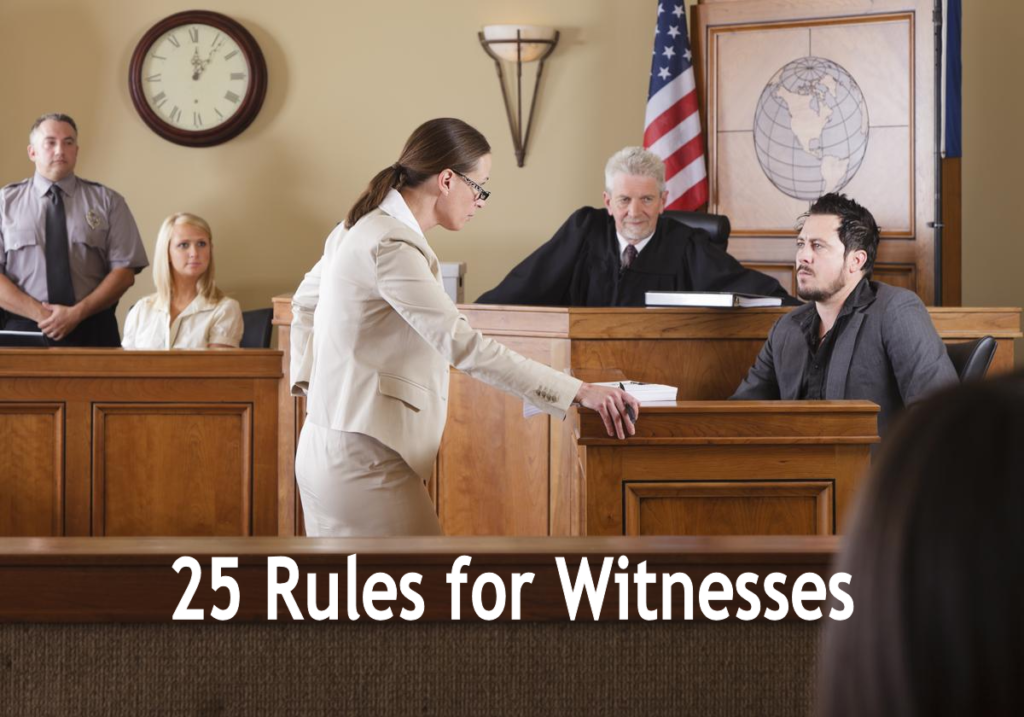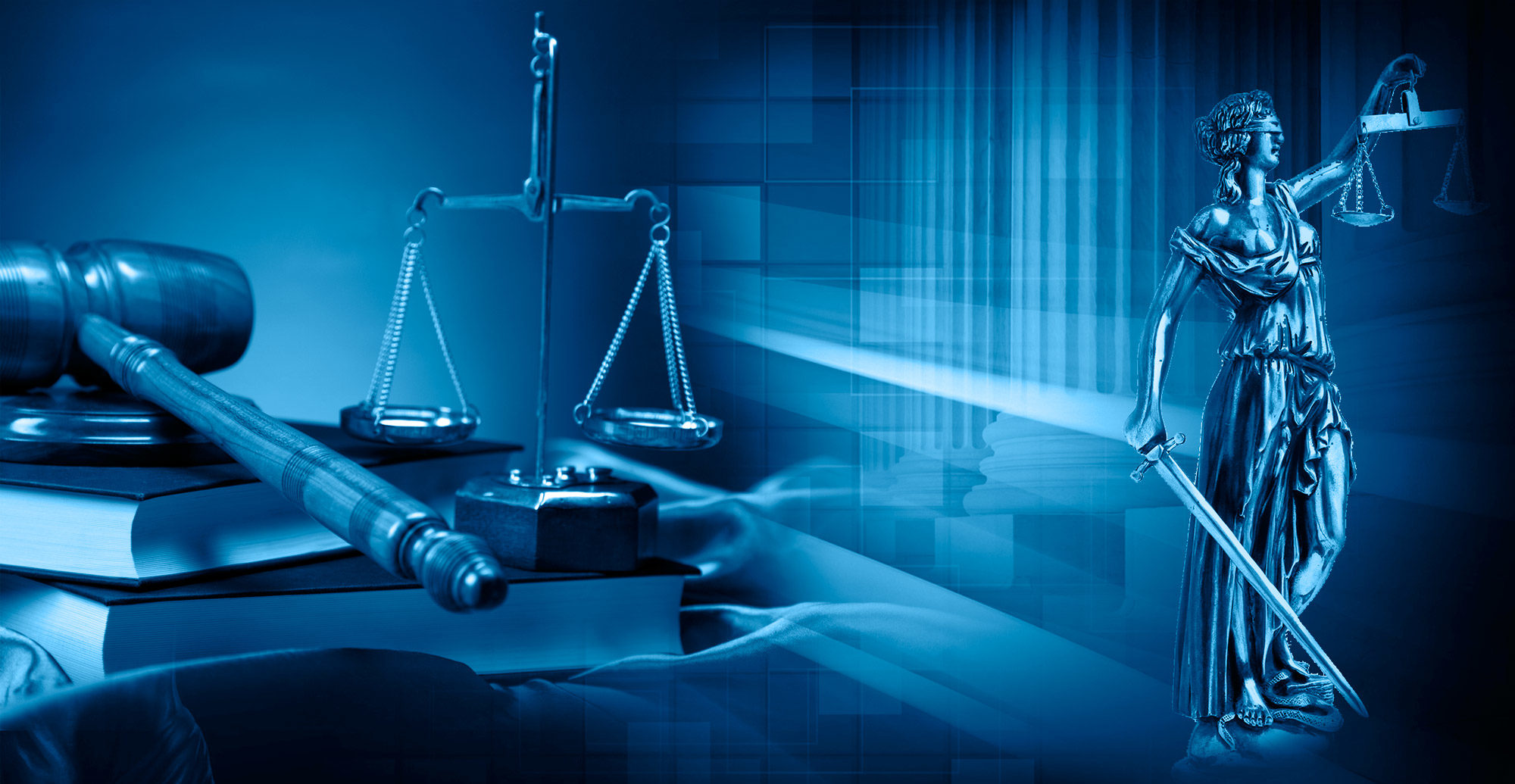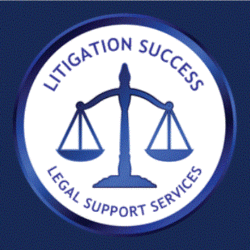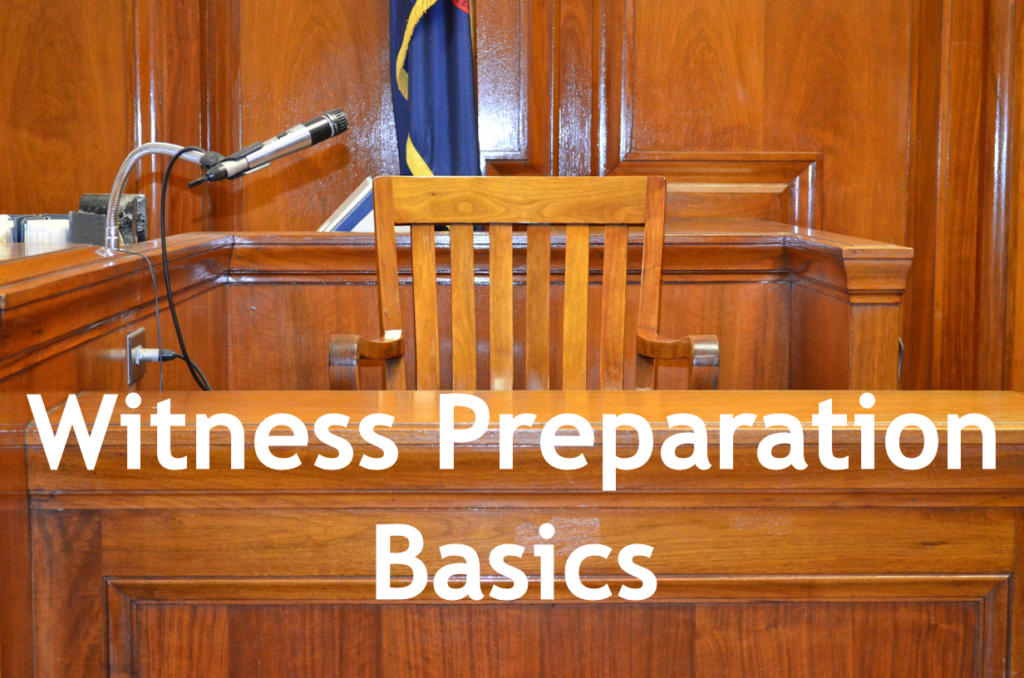
A good attorney will spend a great deal of time properly educating and preparing their clients and witnesses prior to giving any type of testimony. At Litigation Success we know how to teach your witnesses to properly behave, dress and respond when providing testimony.
These witness instructions were written three decades ago, and they are just as relevant today, if not more so. For example, three decades ago you could tell a witness to “dress like you’re going to church or a funeral” and that meant something. Today, most people don’t go to church, and if they do, they wear torn jeans. Even some ministers on TV wear leather, chains and have shaved heads and tattoos. Even though times are quickly changing, that type of appearance won’t make a good impression in court.
The following list is not comprehensive, but these are the 25 most important rules that all witnesses should fully know and understand prior to providing testimony.
- Always understand that providing testimony is a serious matter not to be taken lightly. You should give it the attention it deserves. Whether you are testifying on your own behalf, or someone else’s, the outcome can result in serious positive or negative consequences.
- Always arrive early. Plan your time wisely and allow plenty of time in your schedule so that you will not be late. Even arriving one minute late is a big deal, so make sure this does not happen.
- Always tell the truth. The truth never changes. You are testifying under oath and you should take that oath seriously. Furthermore, if you lie, chances are you won’t remember your lies precisely and the next time you’re asked the same question, you’ll answer differently. This is usually how people get caught with their lies. Lies are inconsistent and the truth is not. Most importantly, perjury is a felony! Don’t think you won’t get caught in your lies.
- Always fully understand the question before you answer it and say so if you don’t. There is nothing wrong with asking for clarification or simply stating you don’t understand the question.
- Never offer extra information; just answer the question asked. This doesn’t mean you should answer every question simply as “yes” or “no.” If the question can be answered simply, do so. If the question requires an explanation, keep it as brief as possible. You should answer in complete sentences. Do not mumble. You must respond audibly with complete words. Do not nod to indicate yes or no or say “uh huh” or “un uh”, etc.
- Never guess/speculate – if you don’t know the answer, say so. There is a big difference between speculating and estimating; make sure you know the difference. In some instances, it may be appropriate to provide an estimation, but never a speculation.
- Always answer based on what you remember accurately — if you really cannot remember, say so. When providing testimony, you are providing information as to what you know. You are not testifying about what you believe or how you feel. It is important that you understand this distinction.
- Never be afraid of sounding stupid for saying you don’t know the answer to a question. It is better to sound uninformed than dishonest or even worse, flippant.
- Never testify about a document without reading it first – all of it. Take your time. Don’t just quickly glance at a document and assume that you recognize or know what is in it – be absolutely, 100% sure. For example, if you are asked to verify your signature on a document, make sure you actually remember signing that particular document before agreeing that it is indeed your signature on the document.
- Always have a strategy for answering questions. The goal is to have your testimony last for as short a period of time as possible, not the longest. This can only be accomplished by providing concise answers to questions without offering extraneous information.
- Always conduct yourself with decorum and dignity. When giving testimony, humor is inappropriate and profanity or racial slurs are inexcusable. If you need to use an obscenity to quote someone, make sure it is known beforehand the reason for your off-color language. Even though people try to remain impartial, they cannot help but to judge others on their conduct. What you say is important; how you say it is just as important. Also, courtesy goes a long way in creating a positive impression.
- Always treat all parties involved with respect, including the opposing parties. When speaking to a judge, always address him/her as “your honor.” Address all other parties as Mr. or Ms. followed by their surname. Also, “sir” and “ma’am” are appropriate.
- Never allow yourself to get overly emotional, angry or lose control. If a question is emotionally upsetting, take a deep breath and calm yourself before responding. If you cannot contain yourself, privately tell your attorney and ask for a break.
- Never interrupt anyone speaking and always let the other party finish speaking before saying anything. The court reporter must take down every word spoken. This cannot be accomplished accurately if two people are speaking at the same time.
- Never speak to anyone other than your attorney during the proceedings. During a trial, never speak to jurors or other witnesses either inside or outside of the courtroom. If you know people in the courtroom don’t wave to them, wink, etc. During depositions, don’t converse with anyone during breaks including opposing counsel, the court reporter, videographer, etc. Also, be careful what you say in restrooms. You never know who someone might be or who is listening.
- Always trust your attorney. If your attorney objects to a question, it is because it is in your best interest to not answer that question. Don’t volunteer an answer once your attorney has voiced an objection. Wait for your attorney or the judge to tell you it is all right for you to respond.
- Never drink any alcohol, use any drugs, or any other substances that will affect your ability to think and speak clearly prior to giving testimony. If you are taking legally prescribed medications that alter your mental faculties, make sure your attorney is aware of this beforehand. It is natural to be nervous prior to giving testimony, but it is better to be nervous than intoxicated or impaired.
- Always get plenty of sleep the night before you are going to testify. You will not make a good impression if you are nodding off or yawning during the proceedings.
- Always dress appropriately for the proceedings. Your appearance matters more than you realize. When in doubt, opt for a classic or conservative look. If you don’t know if your attire is appropriate, put on the outfit and show it to your counsel several days prior to the proceeding.
- Never wear cologne or perfume. Many people are allergic and it could create sensitivity issues.
- Always attempt to camouflage tattoos and remove visible body piercings such as nose rings or lip piercings as much as possible. Some people may make inappropriate assumptions about you simply because of your choice of personal body adornments and personal expression.
- Never chew gum or chewing tobacco. Also, do not bring snacks or food with you. If you have a medical condition that requires frequent meals to regulate your blood sugar, make sure your attorney is aware of this well in advance of the proceedings.
- Always inform your attorney of any and all medical conditions and/or disabilities that may affect your ability to testify. Depositions and court proceedings may last for many hours and if you are unable to sit upright for several consecutive hours, your attorney needs to be advised of this fact.
- Never text or play with your cell phone during any type of proceedings. Silence your cell phone or turn it off.
- Never bring a child to any type of proceeding. Unless the child is the subject of the proceeding and the child’s presence is required, make suitable arrangements for someone to care for the child in your absence.
Litigation Success can help you properly prepare for any type of legal proceeding. Knowing what to expect and how to conduct yourself can alleviate stress and any potential mishaps. We hope you find these 25 Rules for Witnesses helpful.


